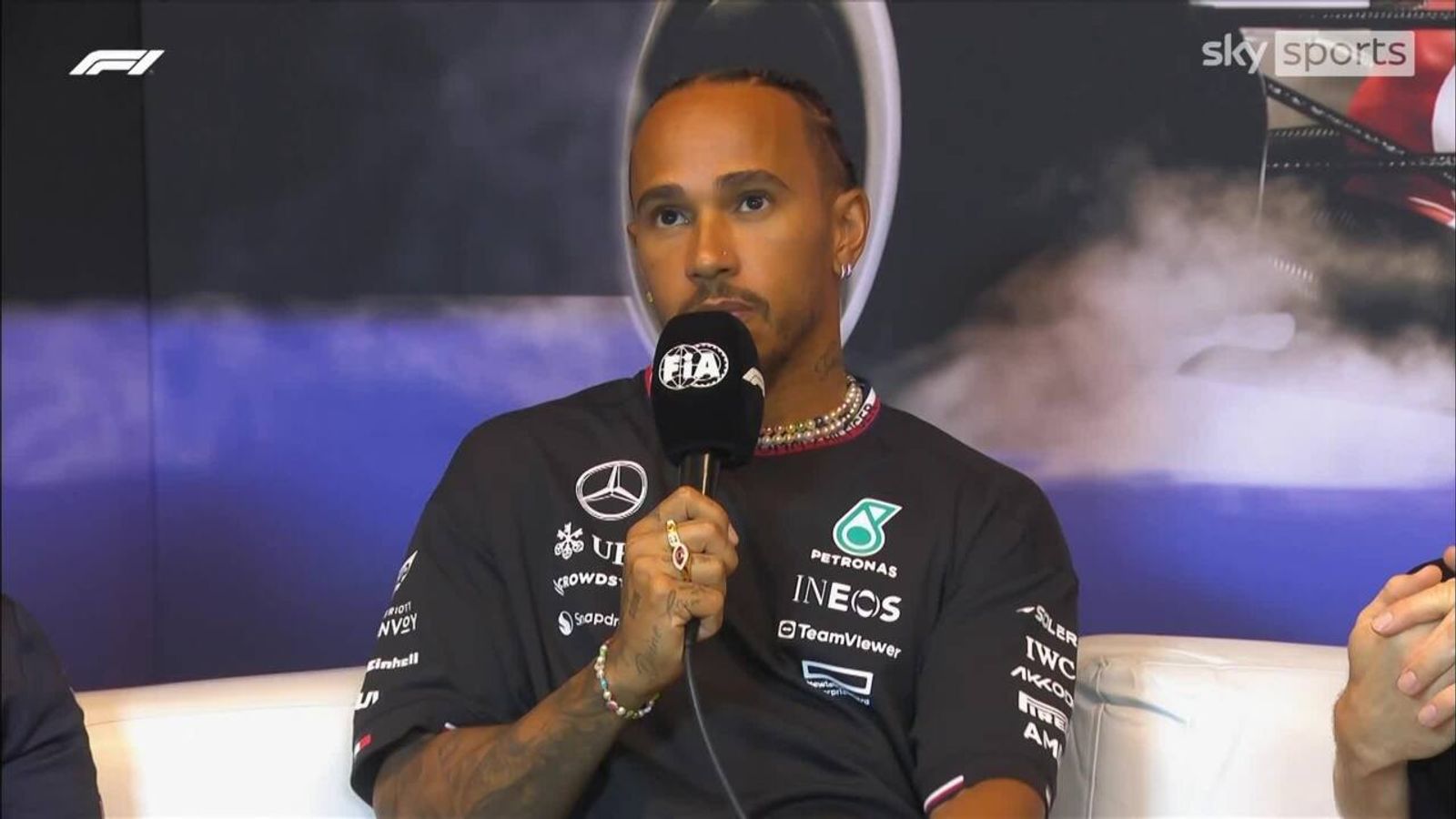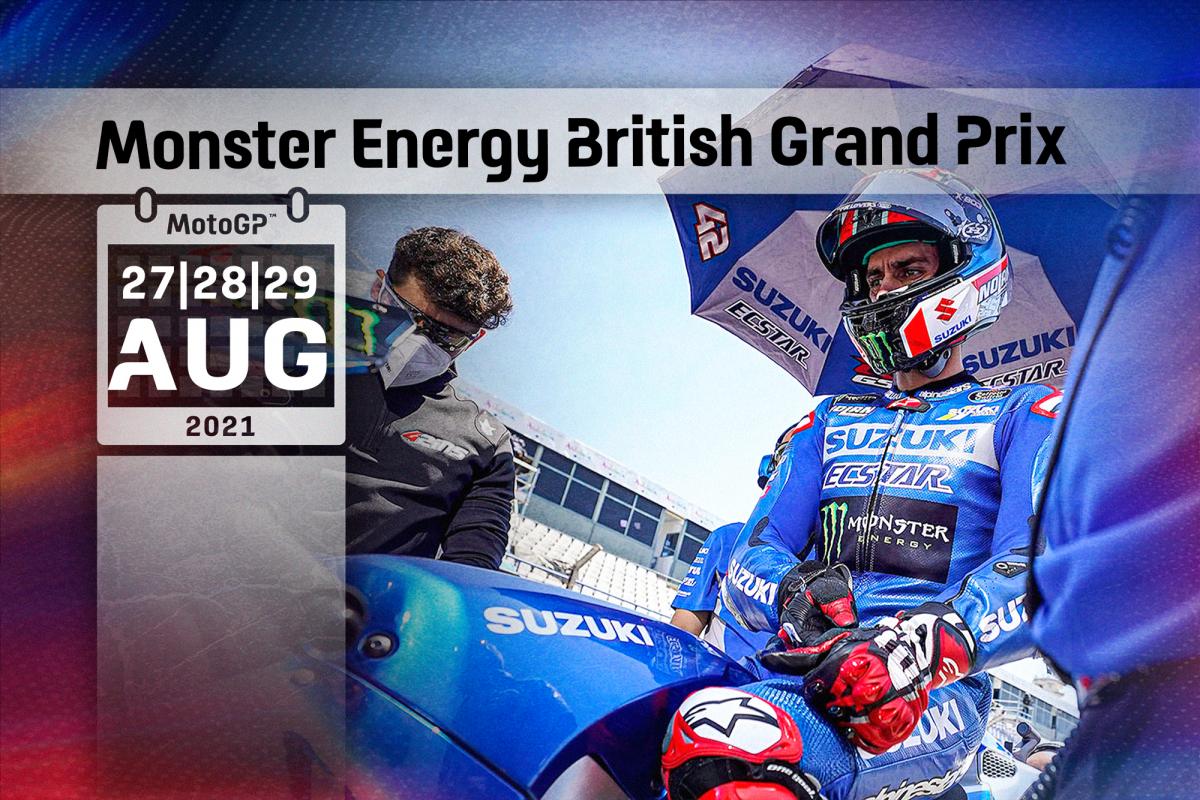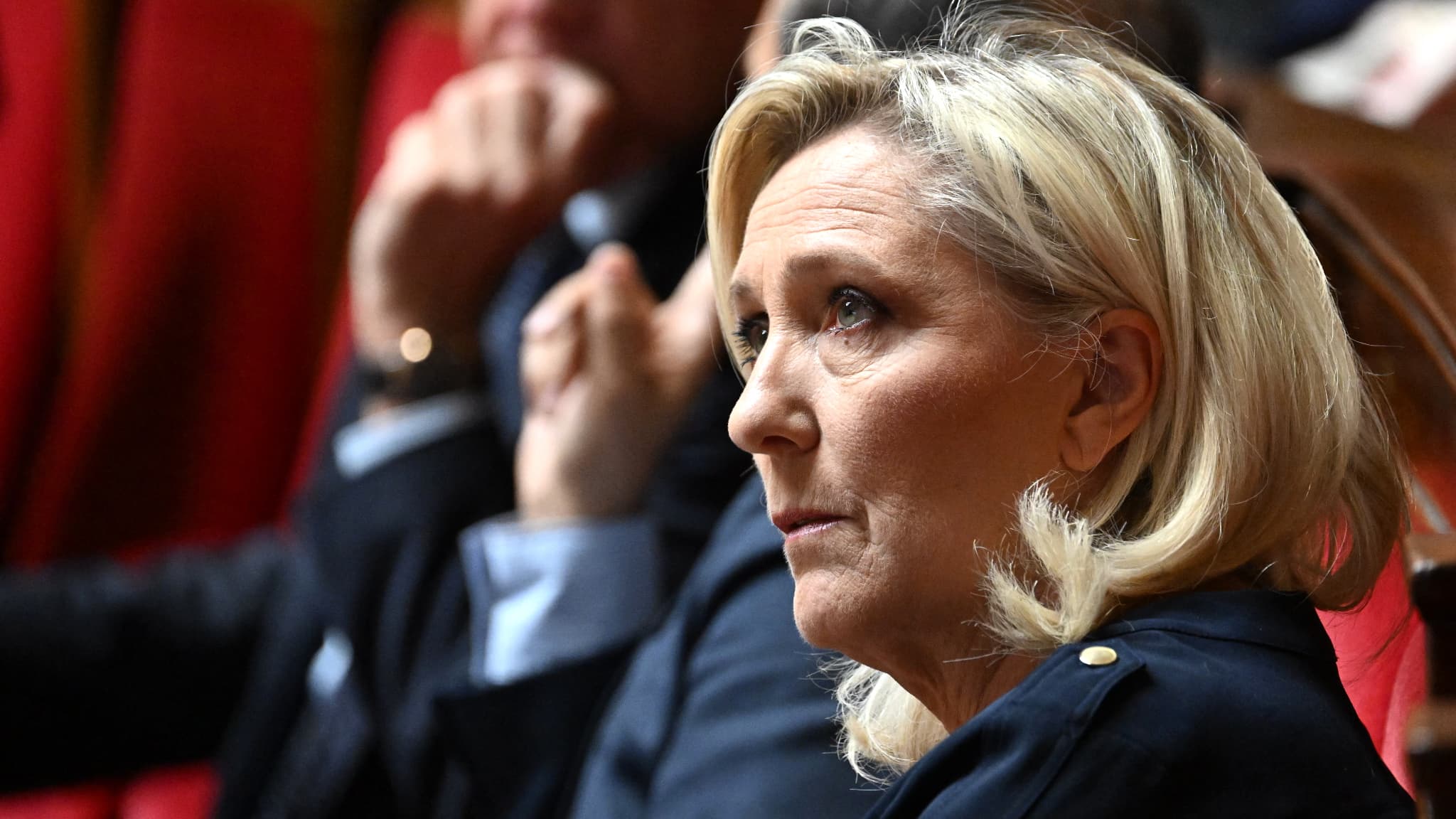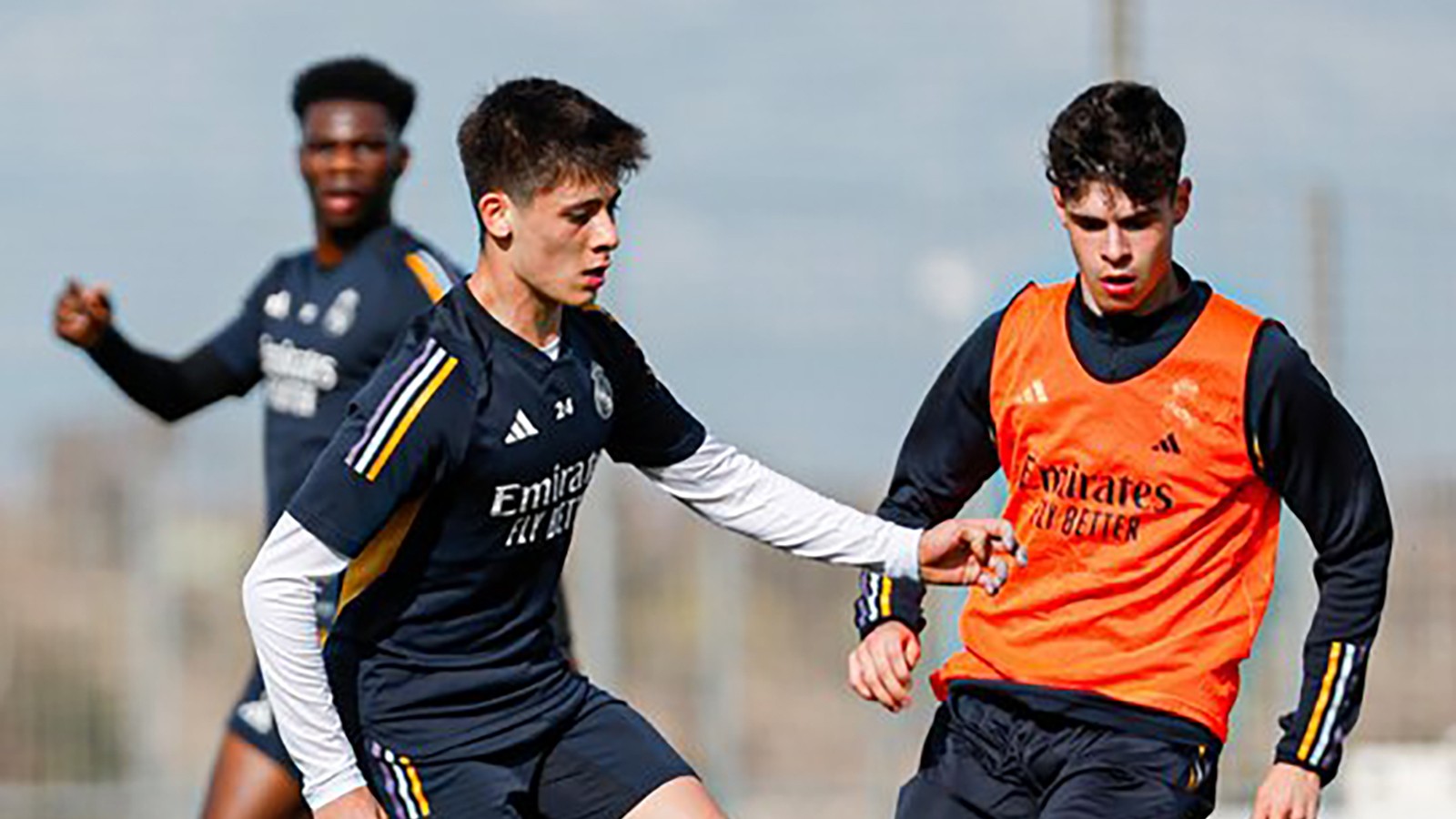Lewis Hamilton And The New F1 Regulations: A Deeper Look

Table of Contents
The Impact of Ground Effect Aerodynamics on Hamilton's Driving Style
The 2022 regulations marked a fundamental shift in F1 aerodynamics, moving away from the high-downforce cars of previous years to ground-effect aerodynamics. This change fundamentally altered how cars generate downforce, relying less on large wings and more on the airflow channeled under the car. This shift significantly impacted car handling and demanded a new driving style from all drivers, including Lewis Hamilton.
- Reduced reliance on wing adjustments: Drivers previously relied heavily on wing adjustments to fine-tune downforce levels for different corners. Ground effect aerodynamics reduced this reliance, shifting the focus to other setup parameters.
- Increased importance of car setup and tire management: Optimizing the ground effect requires precise car setup and meticulous tire management. Finding the sweet spot between downforce and drag became crucial for race pace. Hamilton's renowned precision was tested, requiring adaptation to this new paradigm.
- Impact on overtaking maneuvers: The altered aerodynamic balance influenced overtaking. While ground effect theoretically promoted closer racing, the reduced downforce in some areas affected the ability to follow closely and overtake.
- How Hamilton's precision and feedback have adapted (or not): Hamilton, known for his exceptional feedback to the engineering team, played a vital role in Mercedes' understanding and adaptation to the new aerodynamic rules. However, the initial struggles show the significant learning curve presented by this shift.
Data comparing Hamilton's lap times and race results from the pre- and post-regulation change periods reveals a noticeable drop in initial performance, highlighting the challenges posed by the new aerodynamic rules. Analyzing qualifying and race data reveals the impact on his usual dominance. While his raw speed remains undeniable, consistency suffered initially.
Mercedes' Struggle with Porpoising and its Effect on Hamilton's Performance
One of the most significant challenges presented by the 2022 regulations was "porpoising." This phenomenon, caused by the interaction between the car's underbody and the ground effect, resulted in the car bouncing violently at high speeds. For Mercedes, this was particularly problematic.
- The correlation between porpoising and car setup: The Mercedes W13 initially suffered severely from porpoising, directly impacting its performance and driver comfort. Finding the right setup to mitigate this issue proved extremely difficult.
- The impact on Hamilton's ability to push the car to its limits: The constant bouncing made it incredibly difficult for Hamilton to push the car to its limit, affecting his confidence and ultimately his performance. The physical strain on the driver was also considerable.
- How Mercedes addressed porpoising throughout the season: Mercedes spent a considerable amount of time and resources trying to resolve the porpoising issue, implementing various design changes and setup adjustments throughout the season.
- The effect of bouncing on driver health: The intense bouncing had a significant physical impact on the drivers, causing back and neck pain.
[Insert image or video illustrating porpoising here] The visual impact of porpoising underscores its severity and the challenge it presented for Mercedes and Hamilton.
Adapting Strategies: Hamilton's and Mercedes' Response to the New F1 Regulations
Mercedes' initial struggles with the new regulations were well documented. However, the team demonstrated impressive resilience and adaptability. Hamilton, despite the difficulties, played a critical role in the team's development progress.
- Changes in race strategy and tire management: Mercedes refined their race strategies and tire management techniques to compensate for the reduced downforce and increased tire wear. This involved careful planning and execution to maximize performance within the limitations.
- Hamilton's feedback and its role in Mercedes' improvement: Hamilton’s detailed feedback was invaluable in helping Mercedes understand and address the car's issues. His experience and expertise were crucial to the team's recovery.
- Comparisons with other teams and drivers: While Mercedes struggled initially, other teams also faced challenges. Comparing Mercedes' progress to that of other teams like Red Bull highlights the team’s ability to overcome adversity.
- Long-term implications for Hamilton's future: The 2022 season demonstrated Hamilton's continued commitment to adapting to changing circumstances. This adaptability suggests a positive outlook for his future performance under these regulations.
The Future of Lewis Hamilton under the New F1 Regulations
The long-term impact of the new F1 regulations on Lewis Hamilton’s career remains to be seen. However, several key factors suggest a continued competitive future.
- Potential for improved performance in the coming seasons: With the lessons learned from 2022, Mercedes is expected to develop a more competitive car in subsequent seasons.
- Hamilton's continued competitiveness against younger drivers: Hamilton's experience and skill suggest he can continue to compete at the highest level, even against younger, emerging drivers.
- The role of technological advancements in overcoming the challenges posed by the regulations: Continued advancements in technology will play a vital role in improving car performance and addressing the challenges presented by the new regulations.
Conclusion
The new Lewis Hamilton F1 regulations significantly impacted both Hamilton's performance and the Mercedes team's strategy. The shift to ground-effect aerodynamics, coupled with the challenges of porpoising, initially hampered the team's competitiveness. However, Mercedes' adaptability, combined with Hamilton's invaluable feedback and driving skill, led to significant improvements throughout the season. Hamilton's ability to adapt and contribute to the team's development highlights his enduring talent and dedication.
The new Lewis Hamilton F1 regulations have presented both challenges and opportunities. Stay tuned for more updates and in-depth analysis of his performance in the upcoming seasons. Continue following the evolution of F1 technology and the impact it has on the greatest drivers in the world, including Lewis Hamilton's continued quest for success. Learn more about the impact of the new regulations on the sport by exploring related articles and news sources.

Featured Posts
-
 Moto Gp Inggris Di Silverstone Jadwal Balapan Klasemen Dan Analisis Marquez
May 26, 2025
Moto Gp Inggris Di Silverstone Jadwal Balapan Klasemen Dan Analisis Marquez
May 26, 2025 -
 Best Nike Running Shoes Of 2025 By Running Style And Needs
May 26, 2025
Best Nike Running Shoes Of 2025 By Running Style And Needs
May 26, 2025 -
 Paris Roubaix 2025 A Gallery Of Gravel Tech Massive Tyres And Innovative Hacks
May 26, 2025
Paris Roubaix 2025 A Gallery Of Gravel Tech Massive Tyres And Innovative Hacks
May 26, 2025 -
 Comparaison Enthoven Le Pen Et Ramadan Un Parallele Sur La Morale
May 26, 2025
Comparaison Enthoven Le Pen Et Ramadan Un Parallele Sur La Morale
May 26, 2025 -
 Uefa Arda Gueler Ve Real Madrid I Sorusturuyor
May 26, 2025
Uefa Arda Gueler Ve Real Madrid I Sorusturuyor
May 26, 2025
